Growth mindset helps students achieve future goals
In March, our Barstow School and Ningbo Haishu Hanvos School jointly held a “growth mindset” public seminar at the Ningbo Marriott Hotel. The seminar featured Shane Foster, the principal of the Barstow School from the U.S.; Qi Kunlun, principal of the Ningbo Haishu Hanvos School; and Katelyn, the head of the English Department of Ningbo Haishu Hanvos School. They introduced the growth mindset in three detailed aspects: “interpretation of the growth thinking,” “how parents and teachers train children to have growth mindset,” and “growth mindset and three-dimensional integrated curriculum construction” (i.e., compulsory education curriculum, English curriculum, excellent international citizenship development curriculum). Parents from grade 1 and grade 2, as well as more than ten local kindergartens, participated in the seminar.
The growth mindset is the belief that intelligence can be developed. Students with a growth mindset understand they can get smarter through hard work, the use of effective strategies, and help from others when needed. The founder of the theory is Carol S. Dweck, a professor of psychology at Stanford University.
After defining the growth mindset, Shane then contrasted it with the “fixed mindset.” He said that “students with a growth mindset believe that intelligence can be developed.” These students focus on learning over just looking smart, see effort as the key to success, and thrive in the face of a challenge. Moreover, students with a growth mindset do better in school.
Fixed Mindset:
This is the belief that intelligence is fixed, and that any subject that is difficult or requires much effort simply means that you are incapable in that area.
Growth Mindset:
This is the belief that intelligence can be grown, and that subjects that are difficult or require extra effort hold the potential for you to increase your intelligence in that area.
Then he used his granddaughter’s learning process as an example to counsel parents not to repudiate students’ behaviors directly in the process of growing up.
Parents should encourage children to try hard to challenge themselves, provide guidance, and give them confidence when they are in trouble. Parents should also help children to find appropriate approaches to solve problems. Moreover, children all tend to be strongly influenced by their parents’ behavior. Shane’s educational idea has won the support and applause from parents.
When parents asked how to correctly guide their children to develop growth mindset, Katelyn, head of the English Department, responded with her favorite phrase: “There are two gifts we should give our children: one is roots, and the other is wings.”
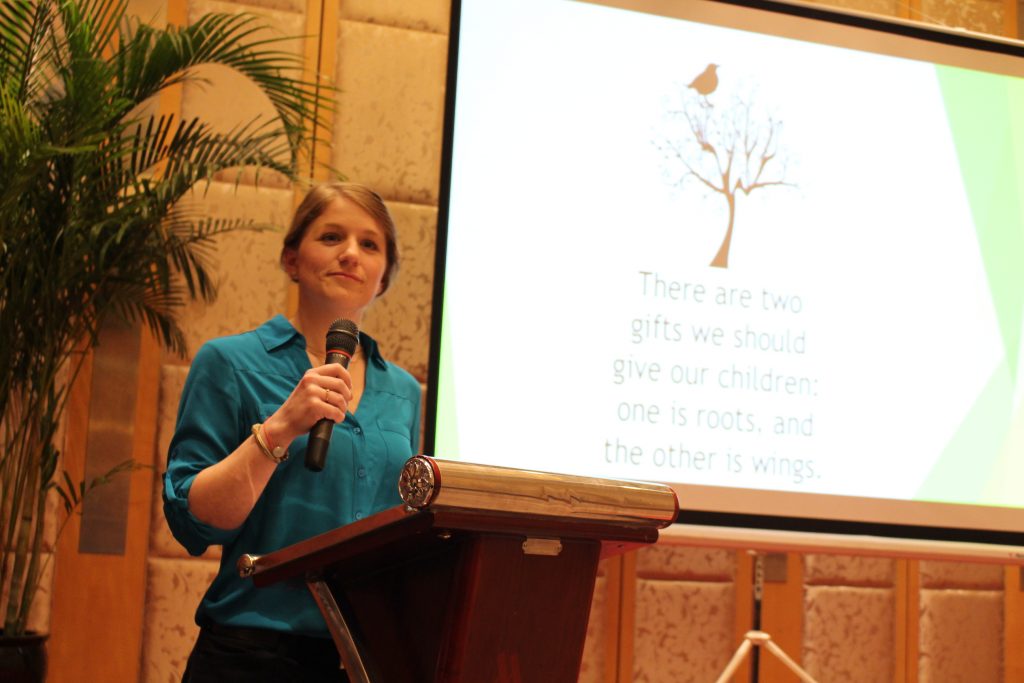
Katelyn answer parents’ questions
She continued, “As parents and teachers, helping children to build a solid foundation is our goal. We give them roots so they can standsteadily, and then we give them wings to seek truth. They can become better than they were. They can find their own way to contribute to our world, and the wings here are the growth mindset.”
“Our disposition towards challenges—how we respond to failure—is determined early on. Our brains normally try to group those struggles into two categories: good or bad. As a teacher, it is my job to help my kids to understand that challenges are good; failure is good. Failure leads to growth. If effort is expounded, and results don’t follow, we look to change the learning strategy, not the kid. We look for other methods of learning that work better. This is the difference between a growth mindset and a fixed mindset: does a child run towards a challenge, seeking new ways to overcome it, or does the child run away from it? As teachers, we want to develop challenges for our students that push them beyond what they already know and allow them to use strategies to problem-solve in smarter ways.”
“The goal for me, as a teacher, is to inspire my students to learn more; to develop a growth mindset that seeks new challenges with an enthusiastic attitude. I want my kids to aim high, and know that if they fall, it does not diminish their worth.”
Katelyn concluded, “I believe that the children who are raised under such an educational idea, would have courage in the face of challenge and seek self-breakthrough.”
A high-quality school is inseparable from the principal who runs it. The highly respected principal Qi is regarded with excellence, and the school has gradually emerged in the private education sector in Ningbo.
In this seminar, principal Qi explained to the parents the construction of the three-dimensional curriculum based on growth mindset in Hanvos School. According to the position of the international bilingual school, Haishu Hanvos School aims to foster wisdom, talent, and great personality in the students, as well as compatibility between Chinese and Western culture. Through many years of exploring and studying, the school has formed a three-dimensional curriculum system. It plans to embody the elements of growth thinking in the courses and pay attention to the cultivation of growth mindset in the course learning.
The seminar ended with warm applause. The parents profited greatly from it. Afterwards, many parents communicated with the two principals and the leaders of diffident teaching departments with their views on education and expectations of Hanvos School.



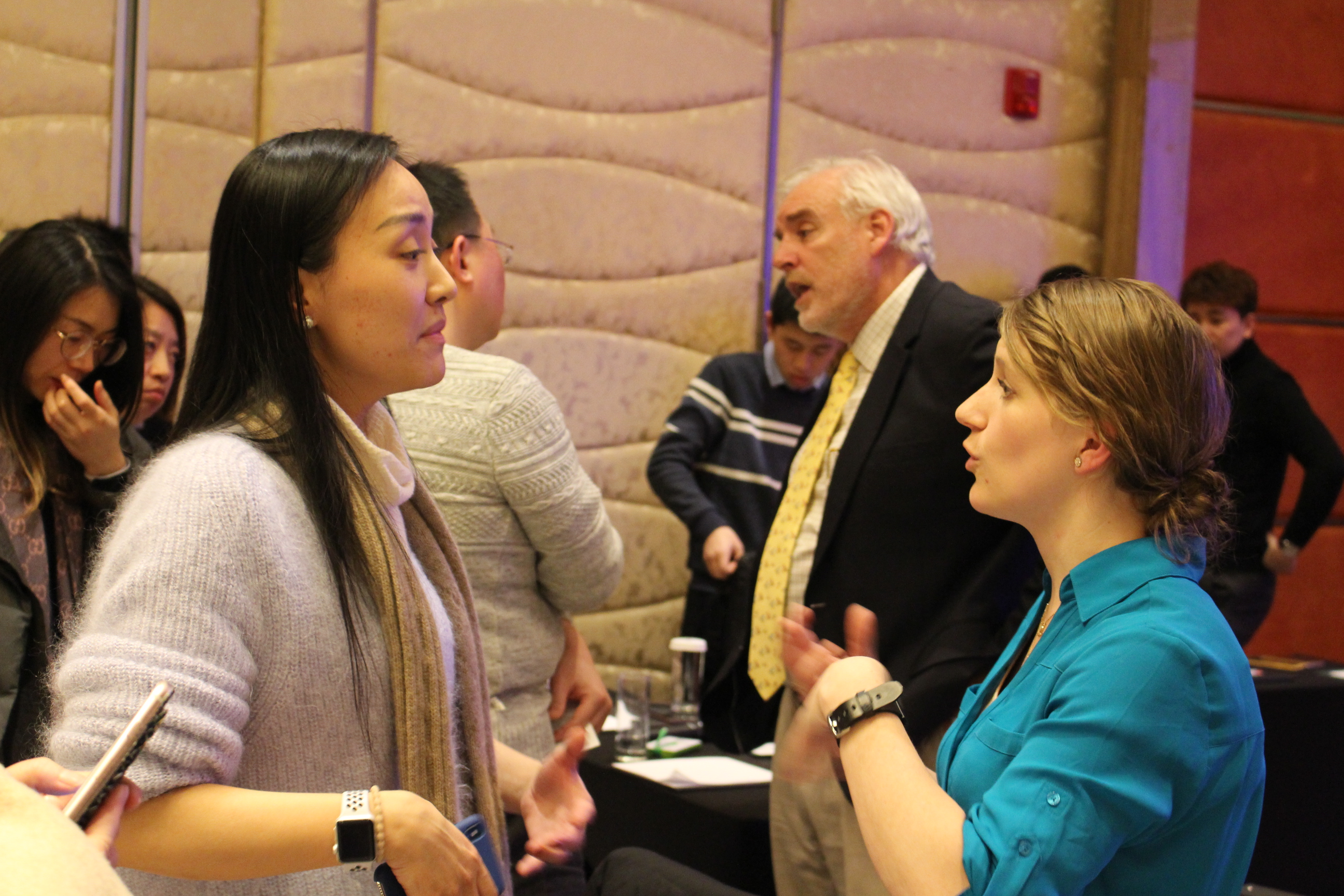

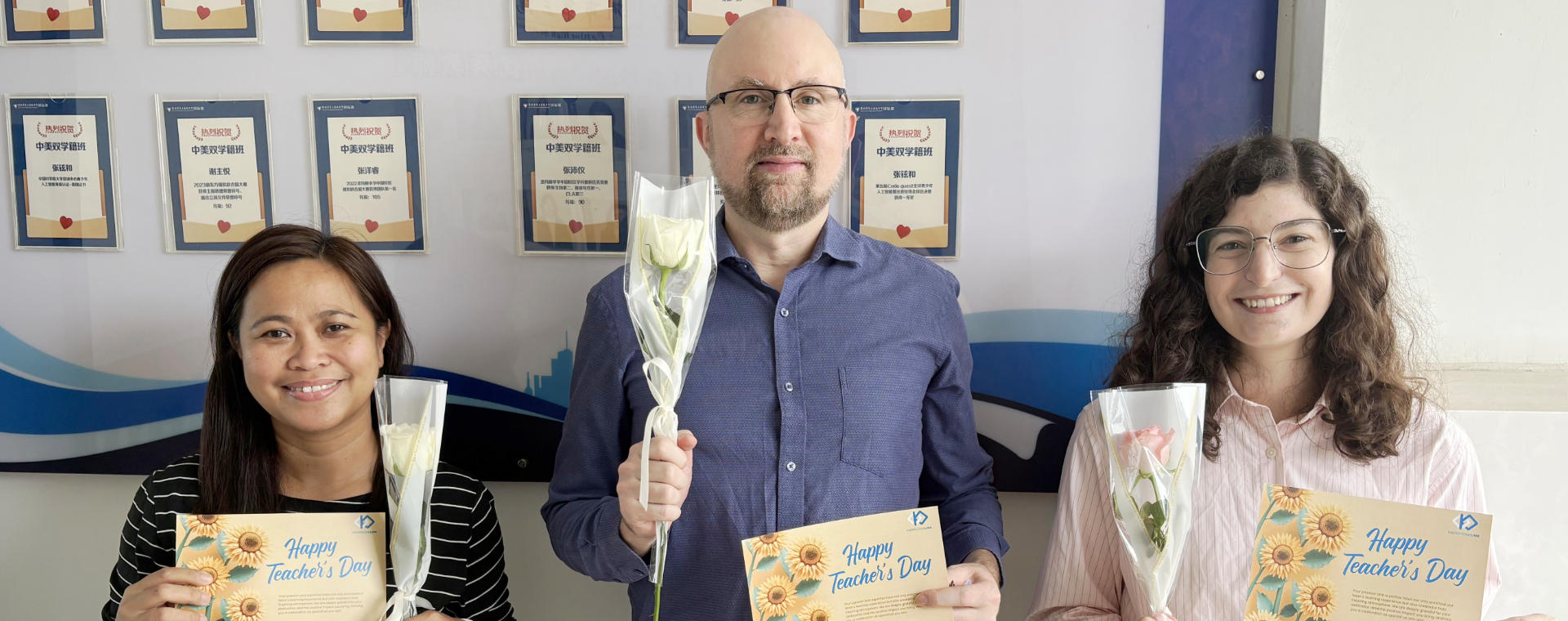
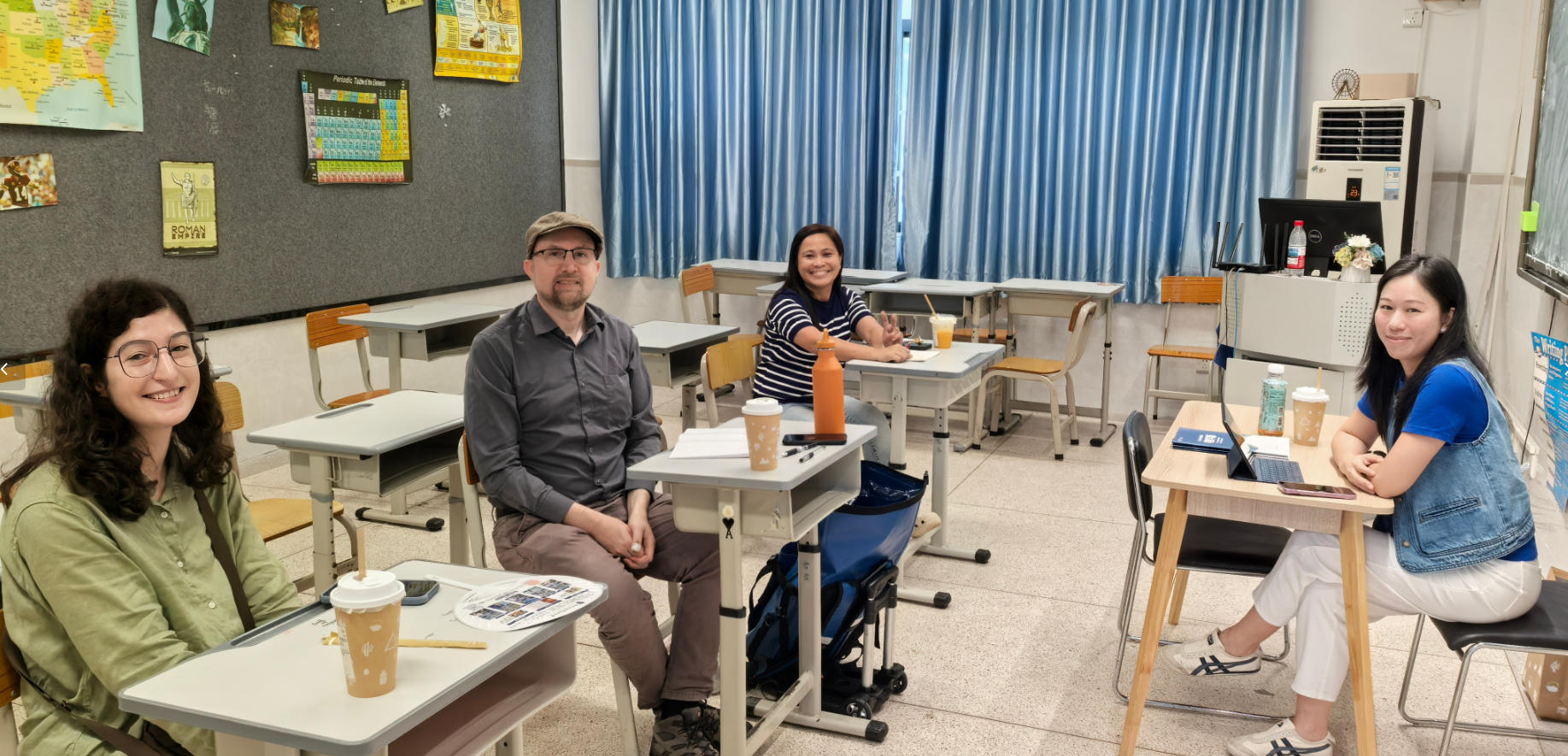
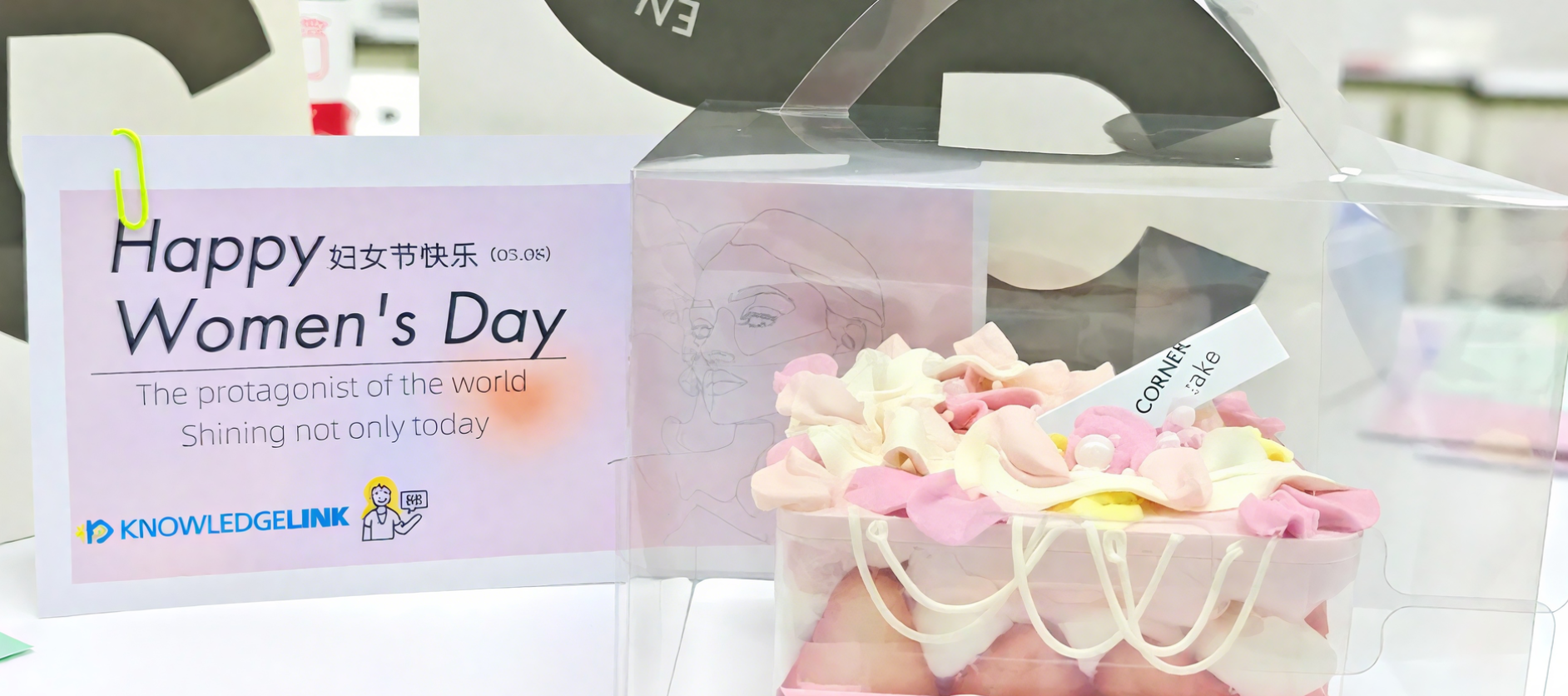
关于我们
了解更多
总部地址
101 Federal Street, Suite 1900,
Boston, MA 02110
1-781-996-0425
info@kleducation.org
订阅我们